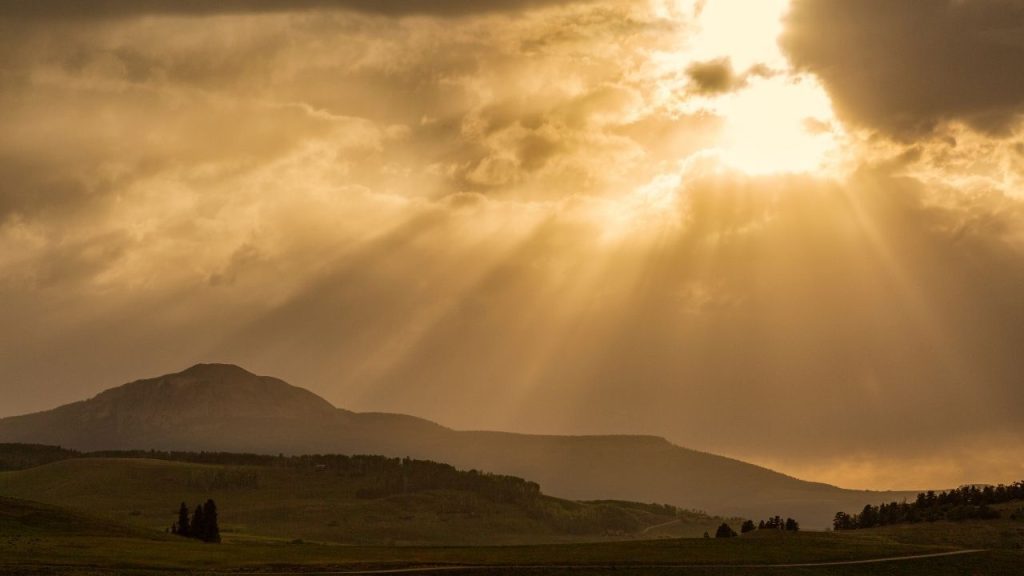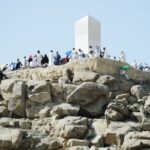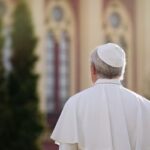Ramadan, Passover, Easter converge: 5 things to know

According to Pew Research, Christianity, Judaism, and Islam are the three most-practiced religions in the United States, and each religion celebrates a major holiday during this time of year.
In the week that includes Passover and Easter, Christians commemorate the crucifixion of Jesus on Good Friday and celebrate Easter Sunday, marking their belief in his resurrection. Jewish people celebrate the eve of Pesach (Passover), which commemorates the Exodus of the Israelites from Egypt and the end of their slavery. Meanwhile, Muslims observe Friday as part of their weekly holiday and are also in the middle of Ramadan, the Islamic holy month of fasting.
Here are 5 things to know about these major holidays and why they’ve converged in this way:
1) This rare alignment of holidays only occurs periodically.
This rare alignment of holidays is possible because the Islamic calendar is lunar, while the Christian and Jewish calendars are based on the solar year. The lunar year is approximately 11 days shorter than the solar year, which causes Islamic holidays, like Ramadan, to shift earlier each year relative to the Gregorian calendar. Over about 33 years, Islamic holidays can coincide with Jewish and Christian holidays due to this difference in calendar systems.
2) Pesach (Passover) and Easter often occur close together but not always on the same date.
Passover and Easter are linked in history, but they don’t always fall on the same day because of the way each religion calculates the dates. The Christian calendar places Easter on the first Sunday after the first full moon following the spring equinox, a method established by the Council of Nicaea in 325 CE. In contrast, Passover’s date is based on the Jewish lunar calendar, which can begin on any day of the week. This difference results in the two holidays often being close in timing but not exactly on the same day.
3) Passover is the oldest of these traditions and represents a renewal of Jewish identity.
The Jewish celebration of Passover is rooted in the Exodus story, when the Israelites were freed from slavery in Egypt, an event described in the books of Exodus and Deuteronomy. This pivotal moment in Jewish history continues to be observed annually, with Passover representing a renewal of faith and identity for Jews. Christians, too, see a theme of renewal in Easter, which commemorates the resurrection of Jesus Christ, an event that symbolizes spiritual renewal and redemption.
4) Easter is celebrated on the first Sunday after the Paschal Full Moon.
The Christian celebration of Easter is tied to the Paschal Full Moon, which is the first full moon after the spring equinox. The holiday marks the resurrection of Jesus Christ, who Christians believe died to atone for the sins of humanity. However, for some Eastern Orthodox Christians, Easter is celebrated a week later than in Western Christianity due to differences in the calendars they follow. Eastern Christians also commemorate the Passion of Christ during Holy Week, leading to a longer period of observance.
5) Ramadan is a time for fasting and reflection in Islam.
Ramadan, the ninth month of the Islamic lunar calendar, is a time when Muslims observe fasting from dawn until sunset, marking a period of spiritual reflection and heightened devotion to Allah. It is the fourth pillar of Islam and emphasizes self-discipline, prayer, and empathy for those in need. The fast is broken each evening with a meal called iftar, often starting with dates, in keeping with the tradition of the Prophet Muhammad. While Ramadan is focused on fasting, it is also a time for Muslims to engage in charitable acts and deepen their connection to their faith.
Although each of these holidays holds different religious significance for its practitioners, they all serve as a reminder to followers of their commitment to faith and to the God they worship. This period of the year serves as a time for spiritual renewal, a theme that aligns with the spring season. It is also a time to celebrate and reflect on the messages of love, unity, and guidance that each faith believes have been communicated by God.



